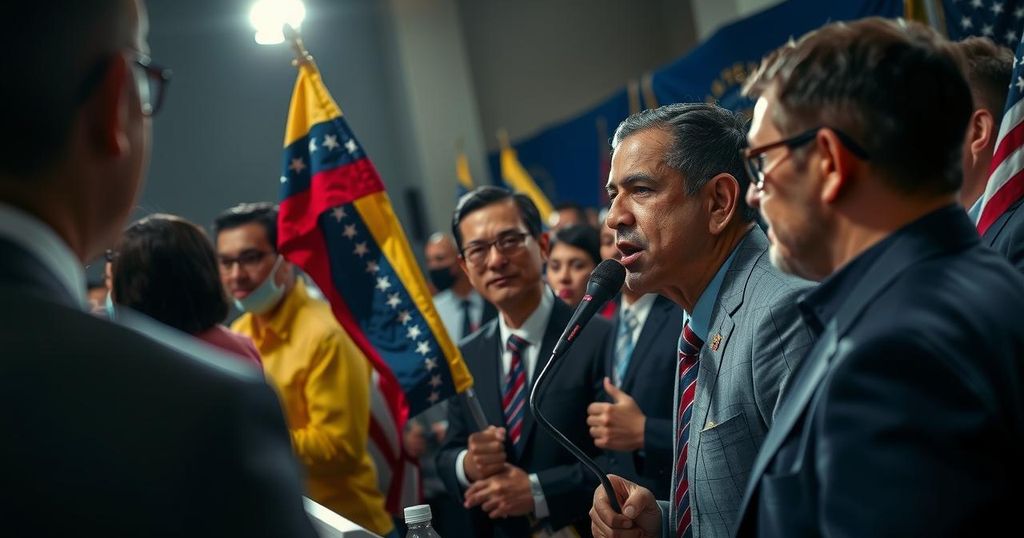U.S. Recognizes Opposition Candidate Edmundo Gonzalez as Venezuela’s President-Elect

The U.S. recognizes Edmundo Gonzalez as president-elect of Venezuela months after a disputed election where President Maduro claimed victory. Secretary of State Antony Blinken demands respect for Venezuelan voters’ will, while Gonzalez has fled the country amid political turmoil. The election’s lack of transparency raises doubts about the legitimacy of Maduro’s continued presidency.
The United States government has officially recognized Edmundo Gonzalez, the opposition candidate in the recent Venezuelan election, as the “president-elect” of Venezuela. This development occurred months after President Nicolas Maduro declared victory in the disputed election held on July 28. U.S. Secretary of State Antony Blinken emphasized the need to respect the choice of Venezuelan voters, stating that Gonzalez had obtained the most votes, despite prior hesitance from the Biden administration to label him as president-elect. Gonzalez, who had fled to Spain after an arrest warrant was issued against him for his involvement in publishing vote count data, expressed gratitude for the recognition, symbolizing the desire for change among Venezuelans. In a swift response, Venezuelan Foreign Minister Yvan Gil condemned Blinken’s remarks, urging a reflection on U.S. failures rather than addressing the election’s legitimacy directly. The Venezuelan electoral body, firmly loyal to Maduro, announced the president’s victory without disclosing detailed voter counts. The controversy surrounding the election reached international attention, as both the European Union and the United States, alongside other nations, called for transparency in the electoral process. However, Maduro has dismissed these appeals, leading to increased skepticism regarding the legitimacy of his administration’s claims. U.N. observers and representatives from the Carter Center noted that the transparency of the voting process was severely lacking, undermining the electoral results announced by Maduro’s authorities. In a surprising turn, Colombian President Gustavo Petro retracted his support for the election, describing it as a “mistake” and asserting it was not a free election, a position he only took during a visit to Brazil. As Venezuela approaches the inauguration of its next presidential term on January 10, the political landscape remains fraught with challenges, highlighting the ongoing discord within the nation and its relations with surrounding countries.
The Venezuelan election of July 28 sparked significant controversy and disputes regarding its legitimacy, primarily due to the ruling government’s control over the electoral oversight and the absence of detailed vote counts from official authorities. President Nicolas Maduro’s regime has faced international criticisms and calls for electoral transparency, particularly from the U.S. and its allies. In contrast, the opposition, led by figures like Edmundo Gonzalez and Maria Corina Machado, claimed victory, citing evidence collected from voting machines. The political climate in Venezuela is tense, with profound implications for its governance and international relations.
In conclusion, the recognition of Edmundo Gonzalez as Venezuela’s president-elect by the United States has further complicated the country’s political dynamics following the disputed election. The Maduro administration’s resistance to calls for transparency has resulted in a growing international outcry and dissent within Venezuela. As the nation prepares for a new presidential term, the future remains uncertain, with potential repercussions for national and regional stability.
Original Source: www.voanews.com







